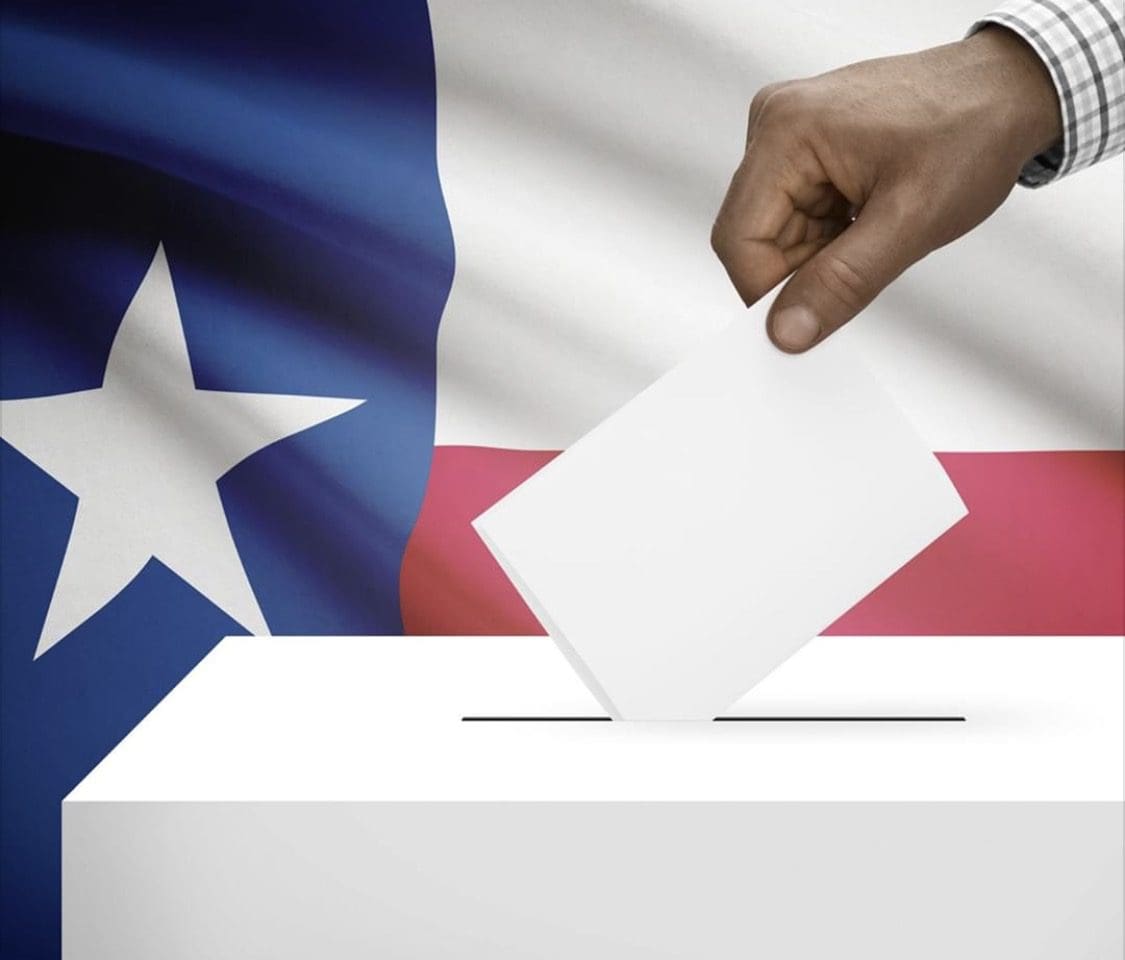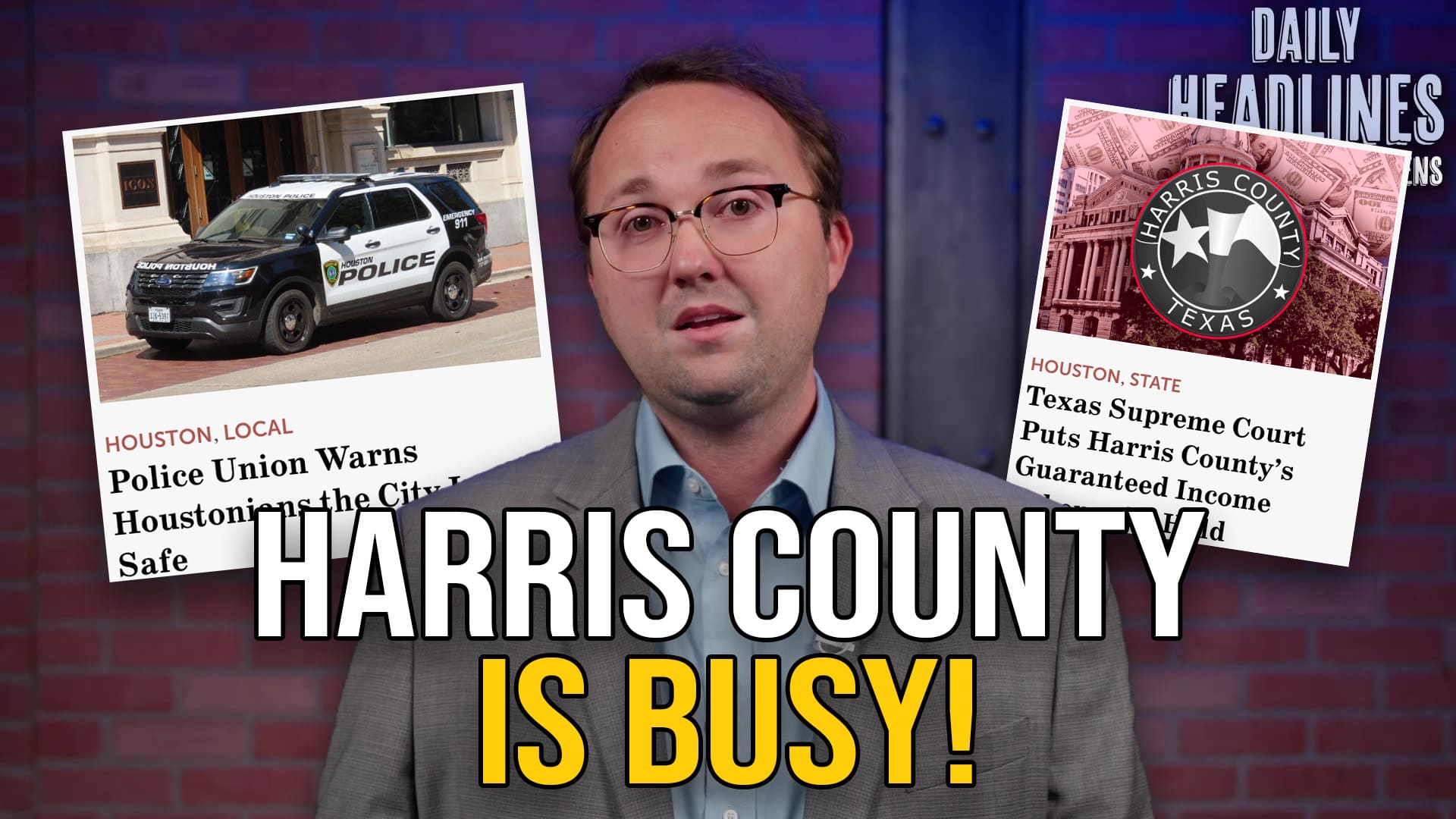Facing a threatened federal takeover of Texas elections by Democrats in D.C., Republican lawmakers in Austin filed bills to protect the state’s voting processes—primarily voter registration—from overreaching mandates. One of those bills received a public hearing this week.
House Bill 4507 by State Rep. Mike Schofield (R–Katy) is a “trigger” bill to separate state and federal elections in the event congressional Democrats pass H.R. 1, a federal measure that would seize power from state legislatures to set their own election laws.
On Wednesday, Schofield laid out HB 4507 in the House State Affairs Committee, explaining what the bill does, why it’s needed, and how it would be implemented.
HB 4507 anticipates that this year Congress will pass H.R. 1, a top Democrat priority resurrected from 2019 that seeks to transform how American elections are run by forcing all states to adopt a left-wing litany of lax voting processes.
“In the history of the country, the feds have never tried to federalize elections,” Schofield told committee members:
Elections have been the purview of the states. If you run afoul of the Constitution, that’s different. … But they haven’t said, “We’re throwing out your election code and replacing it with ours.”
Critics say H.R. 1’s mandates and prohibitions are the same Democrat-preferred policies that led to voting chaos in 2020 and compromise election integrity.
But Schofield argued the key issue is that Congress doesn’t have authority under the Constitution to prescribe state election laws.
“What this bill deals with is who gets the right to legislate,” Schofield said. “It is the Legislature’s prerogative to write legislation for the state of Texas. Only we get to determine the time, place, and manner of Texas state and local elections.”
Schofield said he expects Texas will challenge H.R. 1 in court whether or not his bill passes. HB 4507 simply sets up temporary measures the state can take while the Legislature is not in session to comply with the federal mandates, without compromising the integrity of other elections in Texas.
He explained his bill can’t compel a special session of the Legislature to be called to address the issue because that would require amending the state Constitution.
If H.R. 1 passes and HB 4507 kicks in, the Texas secretary of state’s office in consultation with state lawmakers would adopt rules to implement the new federal procedures “in a manner that doesn’t substantively modify” election laws enacted by the state Legislature.
Specifically, Schofield said H.R. 1 proposes major changes to voter registration rules that are in direct conflict with Texas law: mandating same-day and automatic registration, prohibiting voter eligibility verification, and restricting voter roll cleanup.
New state rules adopted under HB 4507 would establish separate voter registration lists for state and federal elections.
“Congress does not have the right to say they’re changing the voter registration laws in Texas,” he said. “We [the Texas Legislature] are to write the statutes, including the election code.”
The new SOS rules could also move state and county elections to dates other than November of even years, the date when federal elections are held.
Schofield said two states, New Jersey and Virginia, currently hold separate federal and state elections. They vote for state and local offices in odd-numbered years and “don’t commingle with federal elections whatsoever.”
“That’s the way the Constitution works,” he said. “Congress has the right to set the time, place, and manner of their elections, but not for ours.”
HB 4507 puts in place structures for Texas to run federal and state elections under different rules.
Voter registration would automatically be bifurcated, meaning the state would maintain two sets of voter rolls. Anyone registered under Texas rules could vote in state and federal elections, while everyone who registers under federal rules would be put in a separate pool to vote in federal elections only.
Schofield said Texas could hold state and federal elections on different dates or may be able to continue holding them at the same time and just issue different ballot styles based on voters’ registration information, similar to how it’s done now.
House Bill 4402, also by Schofield, would move elections for state and county officials to November of odd-numbered years.
“I would maintain the status quo, but I may not have that option,” he said, adding we don’t know what the final federal legislation will look like.
Elections Director Keith Ingram with the Texas secretary of state’s office told committee members there are a number of ways federal and state elections could be run separately, and he agreed with Schofield that it should be done with minimal modifications to current procedures.
“Our guiding principle would be the least amount of change possible,” Ingram said.
“This bill provides the right answer to what happens if the feds try to mess with Texas election integrity,” said Tom Glass, testifying in favor of HB 4507 on behalf of Texas Constitutional Enforcement. “Let Texans run Texas.”
How state officials respond will depend on what comes out of Congress. Schofield said he hopes the federal law will not abrogate Texas election code, but by passing HB 4507, the state will be prepared to protect its elections from federal takeover.
Bill details and other resources to help citizens participate in the legislative process are available at Texas Legislature Online.





